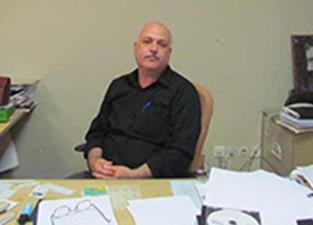Baharieh (on spring)
The Unheard
Seyyed Mohammad-Sadeq Feiz
Translated by Ruhollah Golmoradi
2019-4-6

It's been for years in such days or better to say that in a specific day, hour, minute and even second, the new year will be arrived. Just like a new-born child. And it's for all both auspicious and pleasing and may be exciting. Although the latter, that is, birth of children, is at least a year older than New Year but both of them have come to this place alongside each other. The lovely repeated who are all happy with these repetitions. It is as if these two repetitive events never to be old.
The same unique consecutive recurrences are like a sugar cube soaked in bitter tea of era, and eating them change and make sweet taste of tedious and hard life.
Hearing and reading memories also bring sweetness. Sometimes it's even addictive; however, its tellers are escapee and its seekers are running. What is like it? Being not repetitive coincident with being repetitive!
When someone speaks of prison, or on courageous, his sayings are not the same with another one; as well as his sadness and joy, and kind of his view. One has experienced a year, place and a family and the other a year, place and another family. So why is it sometimes bitter to read and hear some of them? Perhaps, defects must be found in "media". Whether narrator or one who reflects.
The Islamic Revolution was begun by a few people and was initially suppressed rapidly, but it became pervasive because of its spread among the people and their participation, and its repression became hard and harder and, at the end, impossible.
The war was the same. When all the responsibility was absolved from Artesh (the army) and IRGC and distributed among the people, the advances accelerated, and in the fronts the table were turned on the part of Iran.
Now, perhaps, it's time to listen to a few voices that are narrator of just a moment of wide and fast flow of time. In memories of the revolution period, mostly main actors have been addressed and huge mass of people who created epic in streets every day were neglected, but in the war, these single stars restated so great epics and made them abiding.
After all, this patterned and imaginative board which is subjected to patterns by skillful paintings has some pores that will be complemented by restating of the same single voices.
If this happens in the new year, a great step will be taken because this medium is a place for the unheard.
Number of Visits: 4245








The latest
Most visited
- Design and Structure of Interview Questions in Oral History: Principles and Methods
- A Reflection on the Relationship between Individual Memory and Oral History
- Oral history news for March-April 2025
- The Embankment Wounded Shoulders – 5
- Sir Saeed
- Morteza Tavakoli Narrates Student Activities
- First Encounter with the Mojahedin-e Khalq
- The 367th "Night of Memory"
A Review of the Book “Brothers of the Castle of the Forgetful”: Memoirs of Taher Asadollahi
"In the morning, a white-haired, thin captain who looked to be twenty-five or six years old came after counting and having breakfast, walked in front of everyone, holding his waist, and said, "From tomorrow on, when you sit down and get up, you will say, 'Death to Khomeini,' otherwise I will bring disaster upon you, so that you will wish for death."Tabas Fog
Ebham-e Tabas: Ramzgoshayi az ja’beh siah-e tahajom nezami Amrika (Tabas Fog: Decoding the Black Box of the U.S. Military Invasion) is the title of a recently published book by Shadab Asgari. After the Islamic Revolution, on November 4, 1979, students seized the US embassy in Tehran and a number of US diplomats were imprisoned. The US army carried out “Tabas Operation” or “Eagle’s Claw” in Iran on April 24, 1980, ostensibly to free these diplomats, but it failed.An Excerpt from the Memoirs of General Mohammad Jafar Asadi
As Operation Fath-ol-Mobin came to an end, the commanders gathered at the “Montazeran-e Shahadat” Base, thrilled by a huge and, to some extent, astonishing victory achieved in such a short time. They were already bracing themselves for the next battle. It is no exaggeration to say that this operation solidified an unprecedented friendship between the Army and IRGC commanders.A Selection from the Memoirs of Haj Hossein Yekta
The scorching cold breeze of the midnight made its way under my wet clothes and I shivered. The artillery fire did not stop. Ali Donyadideh and Hassan Moghimi were in front. The rest were behind us. So ruthlessly that it was as if we were on our own soil. Before we had even settled in at the three-way intersection of the Faw-Basra-Umm al-Qasr road, an Iraqi jeep appeared in front of us.

